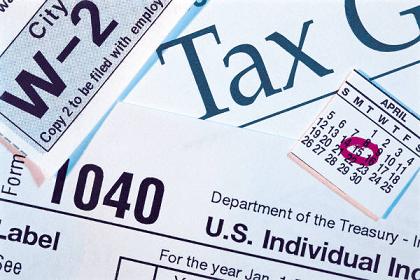I read this article in the Globe & Mail last week and I was so impressed with the subject matter that I actually photocopied it and handed it out to agents in my office.
Tim Cestnick writes for the Globe about tax matters, and his latest article on inheritance is simply a must-read.
Below is the article in its entirety.

TAX MATTERS: INHERITANCE
Heirs can benefit from capital loss on sale of principal residence
Tim Cestnick is managing director at WaterStreet Family Wealth Counsel and author of 101 Tax Secrets for Canadians. tc*******@*********et.ca
January 8, 2009
It was two years ago in May that a good friend’s father died. William always had a sense of humour, which the family experienced once again when they read his will. He left his children a few things, including some advice. Their inheritance was not to be spent on “slow horses and fast women, and only a very small amount on booze.” And then there was the legacy he chose to leave to the “Royal Society for the Protection of Cruelty to Animals.”
Now, in addition to some money, William left his children his principal residence. His children came to me for advice on how to handle the home. You see, the kids wanted to sell the place and split the cash.
“No problem,” I said. “And if you do this right,” I continued, “you can also gain some tax savings.” Let me explain.
THE OPPORTUNITY
William’s home had appreciated in value between the day he bought it, and when he died. At the time of his death, his home was worth $800,000, and he paid just $400,000 for the home several years ago. At the time of William’s death, there was a $400,000 capital gain realized. Why? Simple. Under Canadian tax law you’ll be deemed to have sold all of your capital property at the time of your death, which can give rise to capital gains tax if the property has appreciated in value.
As an aside, you can defer this tax by leaving the assets to your spouse. In William’s case, he was the sole surviving spouse. So, his capital gain was sheltered from tax using his principal residence exemption instead. You see, each family unit is entitled to designate one property as its principal residence each year, and the exemption is also available upon death.
Aside from the principal residence exemption, there may be another opportunity to save tax if your executor sells your home after you’re gone. Back to William’s story. Once he passed away, his kids wanted to sell his home in order to divide up the assets of the estate. That sale took place shortly after William’s death. Whenever this happens, it’s quite possible that a capital loss may be realized by the estate of the deceased.
How so? When you pass away, your estate will become the owner of your home after your death. Consider William. The adjusted cost base of the home to his estate was $800,000 – the fair market value at the time of his death.
William’s executor then sold his home for $800,000 less the costs of selling he home. So, the net proceeds to the estate were less than $800,000. The result is that William’s estate realized a capital loss. There’s a pretty good chance of that happening after your death, too. Don’t forget, even if your executor sells your home for its fair market value at the date of your death, the selling costs alone would create a capital loss.
THE TAX SAVINGS
Here’s where the tax savings come in: If a capital loss is triggered by your estate in the first taxation year of that estate, the loss can be carried back to your final tax return to offset any capital gains that might have been taxable on that return. Subsection 164(6) of Canadian tax law allows this loss to be carried back. That’s right, your heirs will be able to recover some tax that might have been paid on your final tax return if there’s a loss in your estate when selling your home.
Now, there’s a potential problem here. A principal residence is normally considered to be “personal use property, and the tax collector won’t allow you, or your estate, to claim a capital loss on personal use property. The result? You might not be eligible for that 164(6) loss-carry-back. Don’t worry – there’s a solution. You see, your residence, which will be owned by your estate after your death, will not be considered personal use property unless one of the beneficiaries of your state (or someone related to a beneficiary) actually lives in the home after your death.
The bottom line? If your heirs expect to sell your home after your death and hope to claim a capital loss in the process to recover tax you paid at the time of your death, be sure that no beneficiary (or someone related to a beneficiary) ordinarily inhabits the place after you’re gone. this was the advice I gave William’s family, and they managed to recover some tax that had been paid on William’s final tax return.
































Krupo
at 1:59 am
When they die, make sure you’re not under the roof. Clever. Most of the issues discussed above are covered in tax classes young CAs and other fledgling accountants take but that was presented really well.